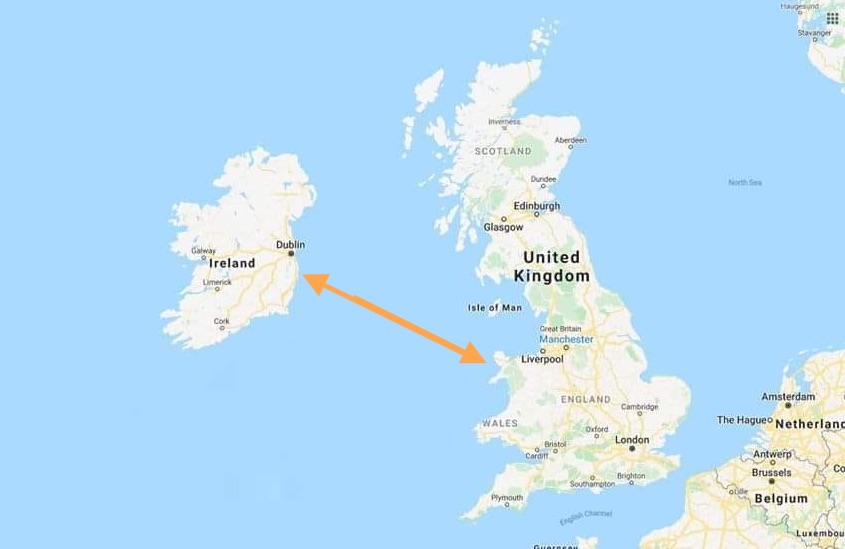
The North’s political leaders must depart from the British government’s coronavirus strategy and urgently harmonise with the South, a leading medical professor has said.
The Belfast-born president of the British Royal Society of Medicine’s epidemiology and public health section, now based in Bristol, has warned of the dangers for people in the Six Counties in following the British approach to the disease. Professor Gabriel Scally warned “divergent approaches” within Ireland could lead to more deaths per head of population.
Boris Johnson’s far-right government has been internationally condemned for its hands-off response to the virus, reportedly motivated by eugenics, an ideology favoured by fascists. In a rare rebuke, even US President Donald Trump described the plan as “catastrophic”, while New Zealand’s Prime Minister Jacinda Ardern said no one in her country would tolerate it.
Although changing direction somewhat, British officials still allow a large range of businesses remain open, and commuters in London continue to crush into public transport without restriction. Authorities there have instead focused on handling the growing number of hospitalisations and deaths.
The death rate in Britain has tripled in the past week, now reaching up to 700 a day, a figure which does not including those who have passed away in care homes.
The BBC has revealed that pensioners in some care homes who contract the virus will not be allowed to enter hospital if they are over the age of 75, a situation being described as a form of euthanasia. They justified the situation by declaring that many of the elderly who are now dying would die in coming years in any event.
Many powerful right-wing news publications in London are now turning against Johnson, who remains in seclusion with the disease, along with his Rasputin-like advisor, Dominic Cummings. Rumours are rife that Johnson may step down if the situation continues to deteriorate.
Although numbers of deaths are also increasing sharply in the north of Ireland, a gradient of penetration of the disease is becoming increasingly clear across the two islands, with London as a new epicentre.
There has been division within the Stormont Executive in Belfast over its coronavirus response, from the question of school closures to levels of testing and which businesses should close down.
Several councils in the North have begun digging large numbers of graves in anticipation of large numbers of burials, but there is a goal for only 8,000 tests, a tiny number by international standards, and far below the level targeted in the South, previously set at 100,000 per week.
In his article this week, Professor Scally said different approaches in Ireland are “just not compatible with achieving the level of control needed to win the battle”.
In a plea to both adminstrations, he said “now is not the time to be captives of our histories”, and called on political leaders in the north to “decouple themselves” from the Tory approach.
“They and their counterparts in the south must, as equals, set about, with every possible urgency, harmonising their strategies and actions. The situation requires boldness of thought and deed.”
He noted that islands have advantages when dealing with epidemics, the natural boundary allowing for greater control of movement. However, Ireland’s geographical advantage is being ‘squandered’, he said, and policy was inconsistent and contradictory.
Different protocols are currently in effect on either side of the border, he noted: “The advice to someone in Lifford with symptoms of the disease is to self-isolate for a minimum of 14 days – a stone’s throw away in Strabane the advice is isolation for seven days.”
Health in the Six Counties is a devolved power, and the Stormont Executive could choose to follow their own path instead of the “seriously flawed” approach advocated in London, he said.
Alliance Party leader Naomi Long, who describes herself as a progressive, is coming under increasing criticism after she continued to back a neoliberal approach to the disease. The stance of the Six County Justice Minister has played a significant role in bolstering the intransigent approach of unionists, regardless of the potential loss of life.
Addressing fears over the potential future spread of the disease, Sinn Féin’s Deputy First Minister Michelle O’Neill said the Covid-19 pandemic “does not respect borders”.
She added: “Co-operation and common action across our island is vital at this time.
“Protection of the lives and welfare of everyone on the island is paramount, and no effort will be spared in that objective.”
Displaying a new forcefulness, she also accused the North’s Health Minister, Ulster Unionist Robin Swann, of being “too slow” to act on issues such as testing and procuring personal protective equipment (PPE) for healthcare staff.
“Slavishly following the Boris Johnson model, which has been too slow to act, means we are not as prepared as we could be,” Mrs O’Neill told BBC’s The View.
“I have made these arguments privately and I feel it’s my moral duty, given the severity of the situation we are dealing with, that I have to say those things when I think they are not right.”
* Professor Scally’s article is published in full below.
![[Irish Republican News]](https://republican-news.org/graphics/title_gifs/rn.gif)
![[Irish Republican News]](https://republican-news.org/graphics/title_gifs/harp.gif)

